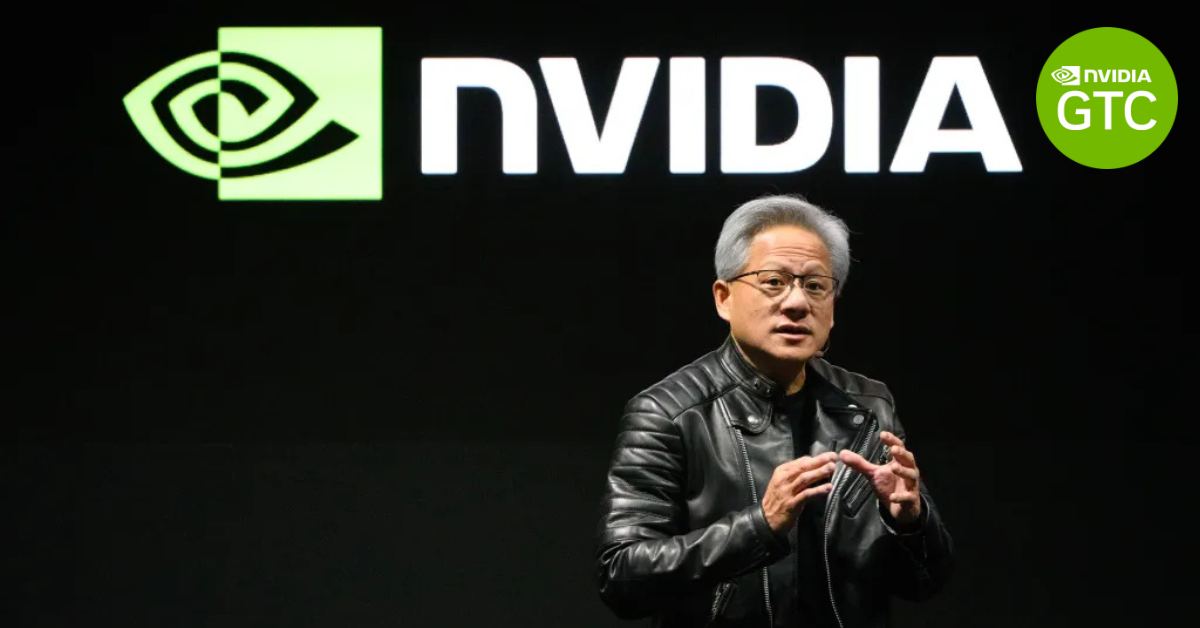Artificial Intelligence (AI), and cutting-edge tech are just two areas of focus for the NVIDIA GPU Technology Conference (GTC) which has long been a hub of innovation. When we focus on GTC 2025, it is an upgraded, all-rounded guide in line with U.S. standing whether you coding, driving growth, doing research or just getting started with AI.
What is NVIDIA GTC?
NVIDIA GTC, a worldwide conference for GPU-accelerated technologies and AI applications was founded in 2009. While other generic tech events, GTC is about addressing challenging problems on the verge of a breakthrough in different industries (healthcare, robotics, climate science, and autonomous systems.) The conference provides:
- Keynotes: NVIDIA CEO Jensen Huang’s presentations often unveil breakthroughs (e.g., new GPU architectures, and software tools).
- Technical Sessions: Hands-on workshops, research panels, and developer deep dives.
- Networking: Collaboration opportunities with academia, startups, and Fortune 500 companies.
While GTC is frequently dubbed the “premier AI event,” it’s important to note competing conferences like Google I/O and CES also drive innovation. NVIDIA’s edge lies in its hardware, software, and partnerships ecosystem.
GTC 2025: What We Know (and What We Don’t)
Location & Dates
- Likely Location: Past GTC events have been held at the San Jose Convention Center in California, a Silicon Valley tech ecosystem hub. While NVIDIA hasn’t confirmed 2025’s venue, San Jose remains a strong candidate.
- Probable Dates: GTC typically occurs in March or April. Mark your calendar tentatively for this window, but await NVIDIA’s official announcement (expected late 2024).
Why This Matters for U.S. Attendees:
- Travel Considerations: San Jose’s central location offers proximity to Bay Area tech giants, but budget-conscious attendees should plan early for high hotel costs.
- Virtual Option: Free online access ensures participation across U.S. time zones, with recorded sessions for flexibility.
What’s New in 2025?
While NVIDIA hasn’t revealed specifics, industry trends suggest a focus on:
- Generative AI Evolution: Tools for faster, more ethical content creation.
- Edge Computing: Deploying AI in manufacturing, agriculture, and logistics (key for Midwest and Southern U.S. industries).
- AI Regulation: Sessions on compliance with emerging U.S. federal and state policies.
- Sustainability: Energy-efficient AI solutions, critical for California’s climate goals and Texas’ energy sector.
Note: NVIDIA’s 2024 announcements (e.g., Blackwell GPUs) set a foundation, but 2025 will likely emphasize scaling AI responsibly amid global chip supply-chain challenges.
Why GTC 2025 Matters for U.S. Innovators
Industry-Specific Opportunities
- Healthcare: Partnerships with Mayo Clinic and Johns Hopkins highlight AI-driven drug discovery and telemedicine.
- Agriculture: Startups in Iowa and Nebraska use NVIDIA’s Omniverse for precision farming simulations.
- Finance: NYC fintech firms leverage CUDA for real-time risk modeling.
Policy & Ethics
With the White House’s 2023 AI Executive Order, U.S. attendees can expect sessions on:
- Navigating federal AI regulations.
- Ethical AI development (addressing bias, transparency).
Competitive Landscape
While GTC dominates AI hardware discussions, acknowledge alternatives:
- Google Cloud Next: Focuses on AI software and cloud solutions.
- AWS re:Invent: Highlights scalable enterprise AI tools.
How to Maximize Your GTC 2025 Experience
Registration & Logistics
- Registration: Visit the official GTC website for free virtual access or paid in-person passes 999–2,499 historically).
- Travel: Book flights/hotels early; consider nearby cities like Oakland for cheaper stays.
- Networking: Use the GTC app to connect with U.S.-based attendees (e.g., Austin’s robotics startups, Boston’s biotech researchers).
Session Strategy
- West Coast Attendees: Prioritize in-person workshops for hands-on learning.
- East Coast/Midwest Virtual Attendees: Focus on live keynotes (adjusted for PST time zone) or on-demand content.
Post-Conference Action
- Follow up with contacts via LinkedIn.
- Explore NVIDIA’s Inception program for U.S. startups.
Challenges & Considerations
- Cost Barriers: In-person attendance can be pricey—but virtual participation still offers robust access.
- Ethical Debates: NVIDIA faces scrutiny over AI’s environmental impact and workforce disruption. Engage in sessions addressing these concerns.
- Competition: AMD and Intel are advancing rival GPU architectures, which may influence long-term AI strategies.
Final Thoughts
NVIDIA GTC 2025 will be pivotal for U.S. professionals navigating AI’s rapid evolution. By combining technical depth with regional insights—from Silicon Valley’s startups to federal policy shifts—the conference offers a unique lens into the future of technology. Stay Informed: Monitor NVIDIA’s GTC updates for confirmed dates and sessions. Whether you join virtually or in person, approach GTC with clear goals: learn, network, and critically evaluate how AI can drive growth in your industry.

No responses yet